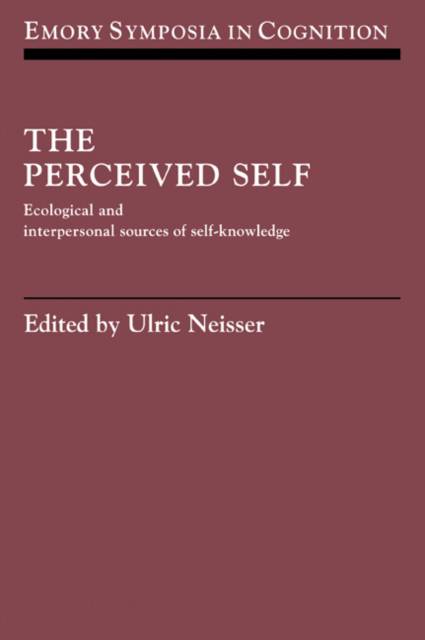
- Afhalen na 1 uur in een winkel met voorraad
- Gratis thuislevering in België vanaf € 30
- Ruim aanbod met 7 miljoen producten
- Afhalen na 1 uur in een winkel met voorraad
- Gratis thuislevering in België vanaf € 30
- Ruim aanbod met 7 miljoen producten
Zoeken
The Perceived Self
Ecological and Interpersonal Sources of Self Knowledge
€ 50,45
+ 100 punten
Omschrijving
This book brings new ideas to bear on the classical psychological problem of the self. A distinguished interdisciplinary group of contributors explore Neisser's hypothesis that each of us has an "ecological self" based on our immediate situation in the environment and an "interpersonal self" established through social interaction. These aspects of the self, which are based on accurate perception, appear early in infancy. They have implications for topics ranging from motor development to psychopathology to nonverbal communication, to social philosophy. The Perceived Self explores these notions with topics that range from the perceptual and social development of infants to autism and blindness; from mechanisms of motor control to dance and nonverbal communication; as well as from ecological theory to the work of social philosophers such as G.H. Mead and Martin Buber.
Specificaties
Betrokkenen
- Uitgeverij:
Inhoud
- Aantal bladzijden:
- 336
- Taal:
- Engels
- Reeks:
- Reeksnummer:
- nr. 5
Eigenschappen
- Productcode (EAN):
- 9780521030403
- Verschijningsdatum:
- 2/11/2006
- Uitvoering:
- Paperback
- Formaat:
- Trade paperback (VS)
- Afmetingen:
- 152 mm x 229 mm
- Gewicht:
- 494 g

Alleen bij Standaard Boekhandel
+ 100 punten op je klantenkaart van Standaard Boekhandel
Beoordelingen
We publiceren alleen reviews die voldoen aan de voorwaarden voor reviews. Bekijk onze voorwaarden voor reviews.










